#essays and articles
Explore tagged Tumblr posts
Text
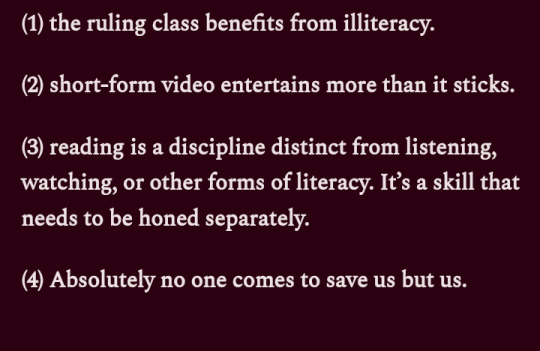
"Absolutely no one comes to save us but us."
Ismatu Gwendolyn, "you've been traumatized into hating reading (and it makes you easier to oppress)", from Threadings, on Substack [ID'd]
#q#lit#quotes#typography#essays and articles#id included#ismatu gwendolyn#youve been traumatized into hating reading and it makes you easier to oppress#threadings#m#x
206K notes
·
View notes
Text
“Junio se me derrite entre las manos.”
Trans: [June melts in my hands.]
https://open.substack.com/pub/mejordicho/p/el-verano-de-perder-la-cordura-4?selection=0305672f-b593-4653-9f67-f249b0704a82&r=bimhd&utm_medium=ios
#creative writing#essays and articles#poetry#quotes#writeblr#lit#escribir#escribiendo en soledad#escrituras#escritxs al viento#lo que escribo#escrita#substack#women writers#Booktok#booklr#Book recs#libros recomendados
0 notes
Text
"A story doesn't need a theme in order to be good" I'm only saying this once but a theme isn't some secret coded message an author weaves into a piece so that your English teacher can talk about Death or Family. A theme is a summary of an idea in the work. If the story is "Susan went grocery shopping and saw a weird bird" then it might have themes like 'birds don't belong in grocery stores' or 'nature is interesting and worth paying attention to' or 'small things can be worth hearing about.' Those could be the themes of the work. It doesn't matter if the author intended them or not, because reading is collaborative and the text gets its meaning from the reader (this is what "death of the author" means).
Every work has themes in it, and not just the ones your teachers made you read in high school. Stories that are bad or clearly not intended to have deep messages still have themes. It is inherent in being a story. All stories have themes, even if those themes are shallow, because stories are sentences connected together for the purpose of expressing ideas, and ideas are all that themes are.
#original post#text post#500#1k#2k#btw i know my definition of death of the author is loosey goosey here#it wasn't the main point so i went informal with it! as ppl in the tags have pointed out it isn't exact#and i do recommend reading the wikipedia article or similar (possibly even the essay itself if you're narsty) if you want to learn more!#wasn't expecting this to take off so my apologies to my barthes-heads out there#love you mwah#5k#10k#15k#20k
30K notes
·
View notes
Text
everybody do yourselves the favour !
joan didion self respect essay joan didion self respect essay joan didion self respect essay
4K notes
·
View notes
Text
So fun reblog game...
What is a meal or a food item that you still desperately crave but cannot get it anymore? Whether it's been discontinued, a place that went out to business, you live far away, etc.
#I'm working on a food themed article for my course.#I'm not using anyone's comments in the essay cause I've already started but I want to know just cause!#feel free to reblog!
643 notes
·
View notes
Text

im so sick over them :(
#narumitsu#narumitsutops#miles edgeworth#phoenix wright#im gonna throw up because of how much i love them#will i ever be freed from my suffering#i love them so much i want to consume them#not in a cannibalistic way but in a vacuum cleaner way. literally just wanna suck them into a void. the void being my mouth.#do you know how i feel#can you look into my soul#banging my head through a wall#how much do i need to yearn to find love like this#how much lore do i need. how much more shall i suffer 💔#unnecessary feelings#wrightworth#worthwright#ace attorney#the heartbreak emoji is PINK???? i didnt know tumblr had GAME like that#i got so invested writing this that i spilt water all over my shirt now my shirt is fucjing WET i hate my life.#wet clothes have no business being the worst sensation ever#if someone said i could have the narumitsu type of love i've always wanted but i'd have to wear a wet article of clothing everyday#i wouldnt pursue it because i hate wearing a wet shirt more than i obsess over wrightworth#tumblr word limits keep me in check because i could've literally just written a whole ass essay rn 💔 but i also despise it because now i#cant keep a continuous flow. goddammit
387 notes
·
View notes
Text
Found something interesting for Pride and Prejudice fans relating to Elizabeth's takedown of Mr Darcy's perception of himself a gentleman.
I'm reading Thomas Fuller's 'The Holy State, and the Profane State' (published 1642 but this version republished in 1841 so the views were clearly still applicable) for a research essay, and in the chapter labelled 'The True Gentleman' he states:
He is courteous and affable to his neighbours … the truly generous are most pliant and courteous in their behaviour to their inferiors.
And of course, during the Hunsford proposal, Darcy has just objected to Elizabeth's family, she's called him out, and we get the iconic lines:
"Nor am I ashamed of the feelings I related. They were natural and just. Could you expect me to rejoice in the inferiority of your connections?—to congratulate myself on the hope of relations, whose condition in life is so decidedly beneath my own?" "You are mistaken, Mr. Darcy, if you suppose that the mode of your declaration affected me in any other way, than as it spared the concern which I might have felt in refusing you, had you behaved in a more gentlemanlike manner."
So Elizabeth drops that bomb just after he's been ungenerous and discourteous about her inferior relations... in direct contradiction of one of the rules of true gentlemanly behaviour. No wonder he can't rebut her words at all in the moment, even though Darcy later says "it was some time, I confess, before I was reasonable enough to allow their justice." He might not believe he's got a real problem yet, but there's been examples Elizabeth could call on from even during the course of their conversation too blatant for him to disagree with entirely!
And then later, obviously, he reflects and finds it's true he also hasn't been gentlemanlike in this and other ways in too many aspects of his life.
#poor man had his entire sense of self demolished by one phrase (he deserved it)#Fuller has lots of other good things about what it means to be a gentleman (some of which I mentioned in T3W) so definitely#check it out if you like reading primary sources since I'm *pretty* sure it's open to everyone#I have access to more scholarly articles and books again and I'm having SO MUCH FUN#(I've made my essay about gentility and class in Emma and Great Expectations - more specifically money vs education and birth#- which is research I've done before for fun so I'm finding it very fulfilling doing a deeper dive)#pride and prejudice#jane austen#elizabeth bennet#fitzwilliam darcy#austen opinions#discourse
107 notes
·
View notes
Text
articles to read instead of doomscrolling #2
The Protagonist Is Never in Control
Walk in these
The existentialist philosophy of Lana Del Rey
On Terror; The Incomprehensible Sublime
An art history lesson from painter Helen Frankenthaler, 60 years later
Between Two Fires: The Music of French and Italian Poetry
An aesthetic little life
Frida Kahlo's Body
Annie Ernaux fixed my disintegrating attention span
No one told me about proust
Our narrative prison
A story of two Pompeii lovers
#literariajournal#books and reading#bookstagram#studyblr#bookblr#bookworm#book blog#journal#booklr#commonplace book#article recommendation#articles#magazine#essays#studyblr community#booklr community
62 notes
·
View notes
Text
gay beatles slash fanfiction has existed since beatlemania, unsurprisingly. so here's some stuff on that topic

"The most visible rock based BandFic community during this era is The Beatles. On August 18, 1960, The Beatles started playing under that name for the first time at an event in Hamburg, Germany. (Whelan) It would be four more long years before the band would make their American debut, an event that occurred on February 7, 1964 when they arrived in New York City for their first American tour. (Whelan) According to Barbara Ehrenreich, Elizabeth Hess, and Gloria Jacobs in their essay "Beatlemania: Girls Just Want to Have Fun," this event marked "the first mass outburst of the sixties to feature women – in this case girls, who would not reach full adulthood until the seventies and the emergence of a genuinely political movement for women’s liberation." This group, composed primarily of middle class, white teenagers, would form one of the core groups in the nascent bandfic community. In their adulation of the band, they would create many of their own fan related products including stories, zines and art. The fannish oral tradition that is alive today is implicit in the existence and circulation of fictional stories about band members during the early years of the band's history. Because the audience was young and not connected into a professional or underground movement, much of the material created by this group of fan girls never was published. The production, in most cases, likely consisted of one to five copies of a story being circulated only among the fan’s immediate peer group. The emergence of The Beatles, their popularity and their fans dedication to creating fan works was helped because of the era in which they appeared. The Beatles were at the forefront for many white, middle class teenage girls in helping them redefine their own definition of sexuality and their own definitions of what it meant to be female. (Ehrenreich) This was taking place in an era where there was that increased debate on subjects like "birth, a woman's obligation to society, and conception, bringing with it all of the bitterness and acrimony that have long surrounded these issues, beginning with perhaps the most obvious one of them all -- Sexism." (Rowland) Legal gender differences between men and women were beginning to fall. (Rowland) For young, white, middle class female Beatles fans, writing stories about the band was an opportunity to challenge their parents, to revel in the new ideas regarding male sexuality, to explore their own and more. They could write about marrying Ringo or having children with Paul McCartney. They could write about being noticed by the George Harrison at a concert and all that followed afterward. Most fans knew that none of those scenarios were likely to happen. Some deeply resented the idea of a member of the band becoming involved with any woman because it destroyed their own fantasies. They did not want to see that happen. It is highly probable, that given this and the fact that they were writing fictional stories featuring the Beatles, that some of the Beatles were written as homosexual if only as a way to ensure that the object of the fan's lust, since they could not be hers, would never belong to another female fan. The idea of writing male on male pairings to cut out other female fans is one that would reappear again and again during the next forty years as new bands were discovered and attracted new groups of young female fans." (X)
#beatles slash#bandom#band boy#the beatles#interview#fandom#the beatles fandom#beatlemania#60s#quotes#beatles#john lennon#paul mccartney#1960s#fandom culture#fanfics#fanfictions#fandom things#fav#essay#george harrison#ringo starr#history#articles#beatle mania#beatlemaniac#beatlemaniacs#internet archive#wayback machine#vintage
71 notes
·
View notes
Text
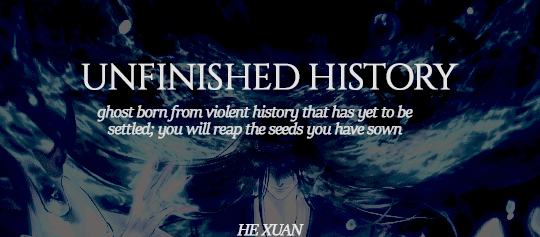
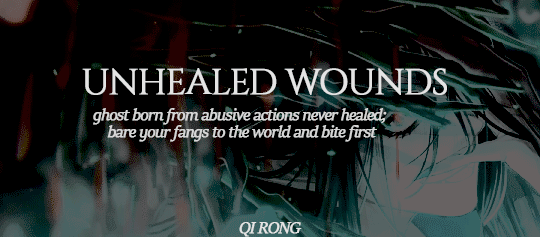
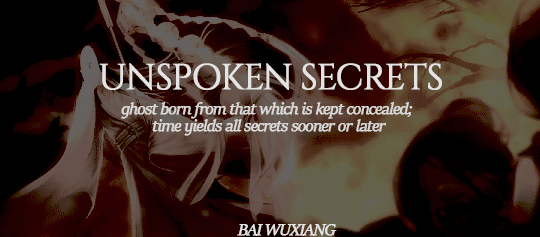
— TYPES OF GHOSTS ( ft. my literature textbooks discussions of types of ghosts in narratives.)
#tgcf#tian guan ci fu#heaven official's blessing#he xuan#qi rong#bai wuxiang#black water submerging boats#Night-Touring Green Lantern#White No-Face#i have the books / articles names if anyones interested#it didn't mean literal ghosts although it DOES apply here#but its fun the different kinds of ghosts there are#and it fit so well#this was actually a project i submitted lmao#there was an essay along with it but shh no one needs that#my edit
177 notes
·
View notes
Text
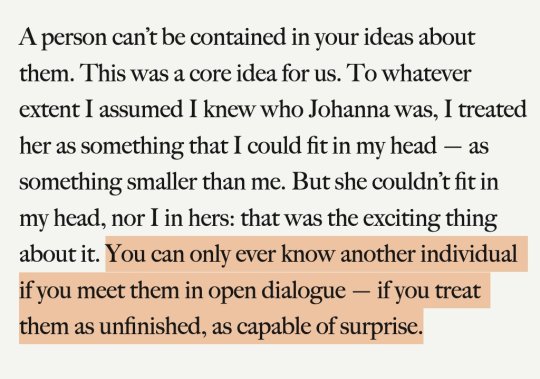
obsessed w this ("Dostoevsky as lover", Henrik Karlsson)
#q#quotes#essays and articles#typography#id included#henrik karlsson#dostoevsky as lover#m#x#buber#two solitudes that protect and touch
12K notes
·
View notes
Text
the topic of colorism within the black community will never be understood until people understand that it's deeper than being bullied in high school and dating preferences.
#i wrote a ten page essay on colorism#nothing annoys me when a darker skinned woman bring up the colorism she experienced#and here come a light skinned woman saying 'i too got bullied in high school'#like shhhh#it's statistics and articles#proving that people of darker skin get denied services#get less pay than their lighter counterparts#get harsher prison sentences#hell some d9 orgs even did the paper brown bag test#i can go on about this topic
432 notes
·
View notes
Text
i miss blaseball every day
#riv#right now im writing the final essay in this class on exploring how fandom interacts with blaseball and with generative narrative#im also thinking of interviewing people on the topic if possible#if anyone is interested#blaseball#metraposting#im just getting so sad reading old articles from when it was still active
118 notes
·
View notes
Text
JSTOR Wrapped: top ten JSTOR articles of 2023
Coo, Lyndsay. “A Tale of Two Sisters: Studies in Sophocles’ Tereus.” Transactions of the American Philological Association 143, no. 2 (2013): 349–84.
Finglass, P. J. “A New Fragment of Sophocles’ ‘Tereus.’” Zeitschrift Für Papyrologie Und Epigraphik 200 (2016): 61–85.
Foxhall, Lin. “Pandora Unbound: A Feminist Critique of Foucault’s History of Sexuality.” In Sex and Difference in Ancient Greece and Rome, edited by Mark Golden and Peter Toohey, 167–82. Edinburgh University Press, 2003.
Garrison, Elise P. “Eurydice’s Final Exit to Suicide in the ‘Antigone.’” The Classical World 82, no. 6 (1989): 431–35.
Grethlein, Jonas. “Eine Anthropologie Des Essens: Der Essensstreit in Der ‘Ilias’ Und Die Erntemetapher in Il. 19, 221-224.” Hermes 133, no. 3 (2005): 257–79.
McClure, Laura. “Tokens of Identity: Gender and Recognition in Greek Tragedy.” Illinois Classical Studies 40, no. 2 (2015): 219–36.
Purves, Alex C. “Wind and Time in Homeric Epic.” Transactions of the American Philological Association 140, no. 2 (2010): 323–50.
Richlin, Amy. “Gender and Rhetoric: Producing Manhood in the Schools.” In Sex and Difference in Ancient Greece and Rome, edited by Mark Golden and Peter Toohey, 202–20. Edinburgh University Press, 2003.
Rood, Naomi. “Four Silences in Sophocles’ ‘Trachiniae.’” Arethusa 43, no. 3 (2010): 345–64.
Zeitlin, Froma I. “The Dynamics of Misogyny: Myth and Mythmaking in the Oresteia.” Arethusa 11, no. 1/2 (1978): 149–84.
#alphabetical order. im not ranking them#i still have two more froma zeitlin essays to read (one new and one a reread) in the next few days though#and its possible one of those might knock amy richlin off the rest (nothing personal; its a great piece just not my area)#but if im willing to have two things by the same scholar i would have to rethink including grethlein 'the poetics of the bath in the iliad'#some of my favorite articles/book chapters of the year are not on jstor though...#bill beck 'lost in the middle: story time and discourse time in the iliad'!!!#and lyndsay coo has a 2020 chapter updating and expanding this 2013 article that is 🔥🔥🔥#and of course judith mossman 'women's voices in sophocles' which is what send me to garrison 1989 and rood 2010 but is not itself on jstor#i also reread some of melissa mueller's objects as actors book which is wonderful as always#and i would be incredibly tempted to put william m calder iii's tereus article on a top ten list for sheer entertainment value#jstor wrapped#mine
504 notes
·
View notes
Text
articles to read instead of doomscrolling.
Demonology
A Question of Free Will: Inside the Final Days of Katherine Mansfield
The Humiliating Act of Falling In Love
How to read a painting
When Horror Is the Truth-teller
Love Is Like Cocaine
Lizzie Siddal: The life of a Pre-Raphaelite supermodel
Joan Didion Against a Performative Life
Women drawing nudes: a history of forbidden bodies
How midlife became a crisis
and more to come!
#literariajournal#bookblr#studyblr#journal#commonplace journal#articles#article recommendation#commonplace book#essays#worth reading#book blog#bookworm#books and reading#studyspo#bookstagram#journaling#booklr#studyblr community
35 notes
·
View notes
Text
i think i might actually be too stupid to live. why did this university let me in i told you guys i was stupid at the start
#BITING HOLES IN MY LAPTOP#‘use scholarly articles’ ok well there ARENT ANY because WHO THE FUCK ELSE WOULD EVER WRITE THIS#english department you’re getting a borderline history essay and you can thank me for it#or send flowers to my hospital room after i fail to blow myself up
38 notes
·
View notes